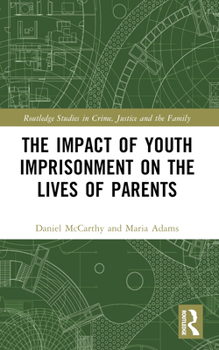The Impact of Youth Imprisonment on the Lives of Parents
Select Format
Select Condition 
Book Overview
It has long been argued that families play a crucial role in helping support prisoners during and beyond their time in prison. Through harnessing material and emotional support offered through family, prisoners can have a stronger commitment to move towards prosocial pathways via these important social ties. Yet, often overlooked are the experiences of families themselves in providing support for prisoners. This book focuses on parents whose adolescent male children are sent to prison. Charting many of the adversities which parents face - from violence, psychological stress, to stigma and shame - the book provides one of the first empirical assessments of the ways parents manage the consequences of serious crime and navigate relationships with their children in prison.
As well as documenting major social hardships of imprisonment, the book will also assess the heterogeneous impacts on relationships between parents and their male children, including cases where relationships may improve or worsen over the sentence. With sensitivity to issues of gender, ethnicity and inequality in families, this book sheds new light on many of the problems of youth crime and presents a highly topical insight into the effects of imprisonment on parents.
An accessible and compelling read, this book will appeal to students and scholars of criminology, youth justice, sociology and all those interested in the role of families in supporting prisoners.





